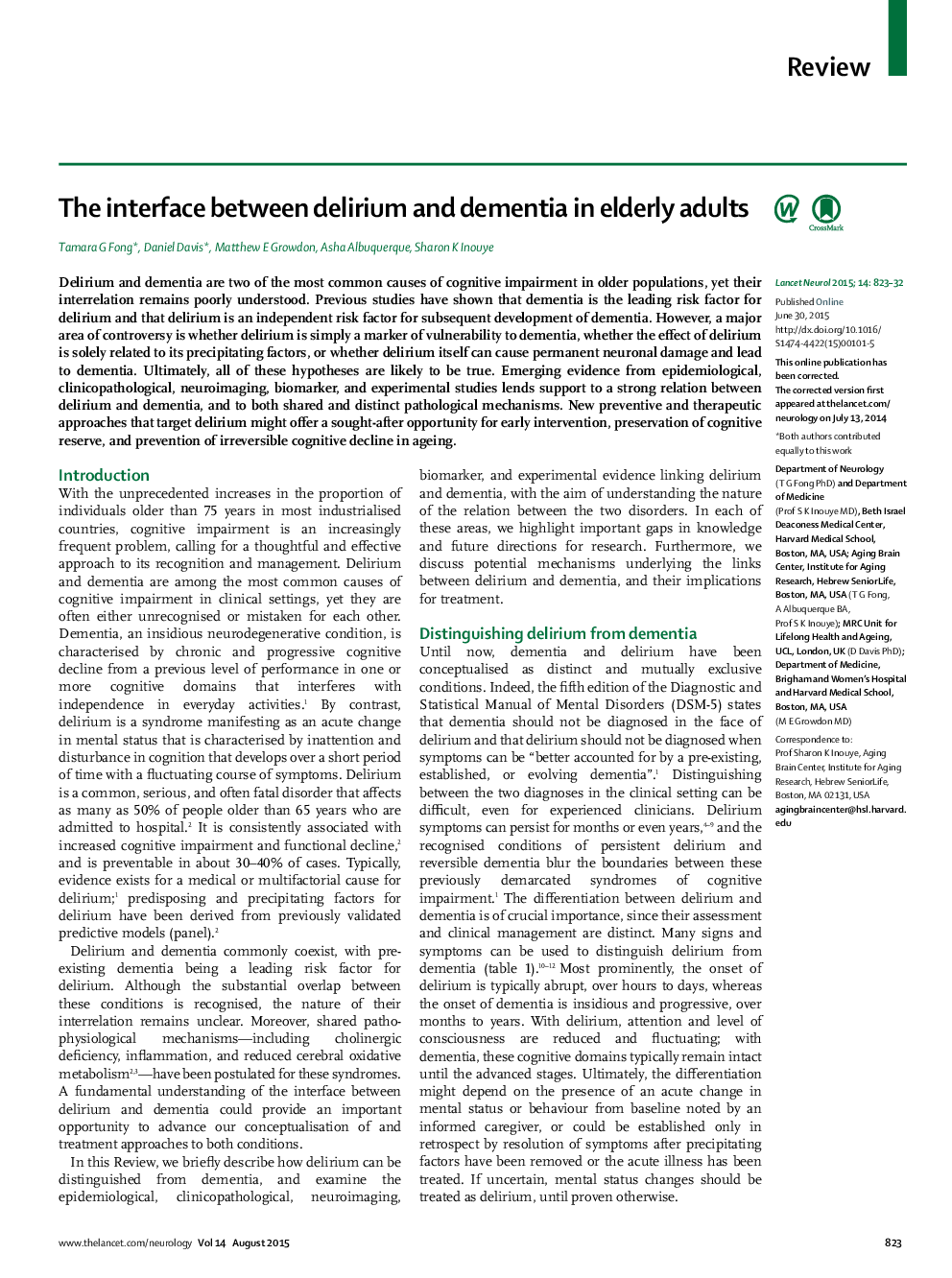| Article ID | Journal | Published Year | Pages | File Type |
|---|---|---|---|---|
| 3066767 | The Lancet Neurology | 2015 | 10 Pages |
SummaryDelirium and dementia are two of the most common causes of cognitive impairment in older populations, yet their interrelation remains poorly understood. Previous studies have shown that dementia is the leading risk factor for delirium and that delirium is an independent risk factor for subsequent development of dementia. However, a major area of controversy is whether delirium is simply a marker of vulnerability to dementia, whether the effect of delirium is solely related to its precipitating factors, or whether delirium itself can cause permanent neuronal damage and lead to dementia. Ultimately, all of these hypotheses are likely to be true. Emerging evidence from epidemiological, clinicopathological, neuroimaging, biomarker, and experimental studies lends support to a strong relation between delirium and dementia, and to both shared and distinct pathological mechanisms. New preventive and therapeutic approaches that target delirium might offer a sought-after opportunity for early intervention, preservation of cognitive reserve, and prevention of irreversible cognitive decline in ageing.
